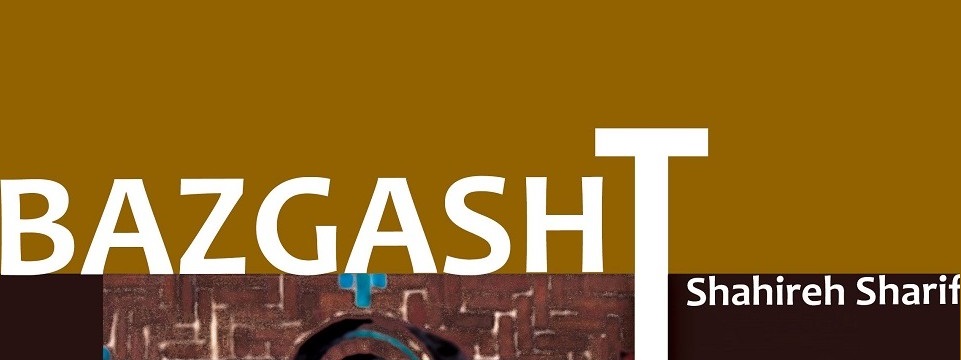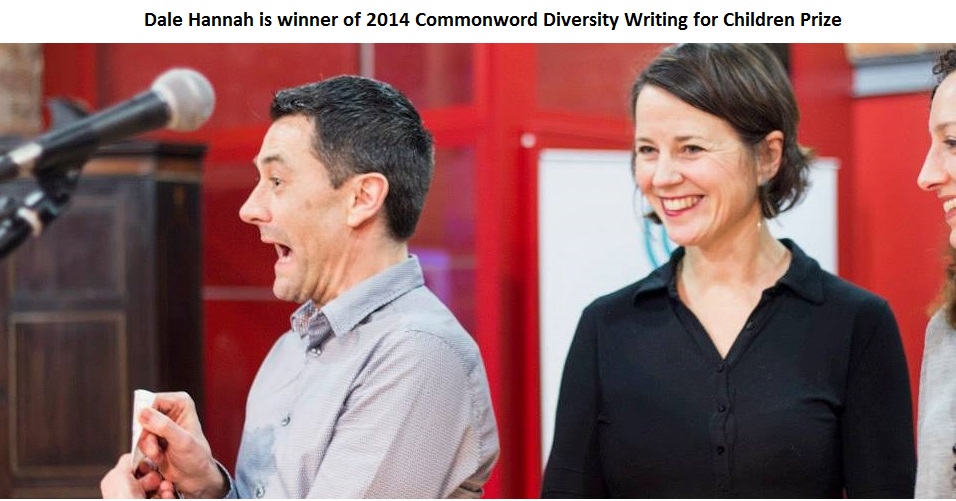Vijay Medtia’s short story – Haram, has been accepted by Outofprintmagazine.co.in
Haram By Veijay Medtia
The work began at the back of the house; the length and width measured and wooden pegs knocked into the ground. With a white can, we sprayed the lines so that the men could see where they had to dig. The access was difficult for a JCB machine and so this was going to be hard manual dig. One man rolled up his sleeves and spat into his hands, before he gripped the wooden handle of the pick. Lifting the pick back over his head, he brought the sharp metal point onto the ground and sunk it into the soil, loosening it. The other men now dug their shovels into the ground, scooping up the soil and filling a wheelbarrow.
The digging was going to take the best part of a week or so, and that was without hitting any difficulties. Mr Ali, a tall man with a black beard came out every morning at eight-thirty to chat with the men and to ask, ‘want brew.’ He then left for work, pleased to see us on time and telling us that we looked like men who were going to work hard. Around mid-morning on the third day, a stocky old man wearing white kurta pyjamas came out from next door and watched us for a while. He had a grey beard and wore a white cap. He was quite jovial and complained about the British weather.
‘Too cold for my Pakistani bones,’ he said. ‘This country too cold.’
He smiled on this first occasion, looked over to Mr Ali’s house and then up at the gutter. Walking out into his garage, he pulled out a long aluminium ladder. He came out with the ladder without any difficulty and placed it near us.
‘I am Mr Ali’s father,’ he said. ‘I am sixty-eight years old.’
We didn’t need to know that but maybe it was his way of asking for help. We stopped the digging of the trench and asked him whether we could help.
‘Lifting ladder against back wall, thank you.’
‘Is something wrong with the gutter?’
There was no reply and I told one of the men to do as he had asked. Mr Ali’s father climbed the ladder all the way to the top and then he seemed to reach over the back gutter with his hand and do something. We couldn’t quite see from below and didn’t give it much thought either. He came down again with a mischievous smile and more than a little self-satisfaction. One of the men brought the ladder down and carried it back into the garage.
We carried on with the foundation work with the mud sticking to our boots, and we went down to about four feet before we hit good clay. It could have been worse and we might have had to go down deeper. The men levelled that section, so that it was four feet deep and nearly two and a half feet across; getting it ready for the building inspector and for the concrete to be poured in the morning.
The next morning there were dark grey clouds with a slight chill in the wind that was blowing in from across the back of the houses. We got to work and developed a good rhythm. Sweat formed over our brows and the muscles ached, but we carried on. Mr Ali came out from the house but today there was no smile or asking of a brew. He looked at us from the back door and I thought he was going to say something but seemed hesitant. When I looked up again, he was staring across at his father’s house and then he asked me.
‘Did my father come around yesterday?’
‘Yes. He checked something on your roof.’
‘You mean he went up there?’
‘Yes, he climbed the ladder that he brought out.’
‘He did that?’
‘Yes he did, why what’s the matter?’
As soon as I said that, his frown got worse and he went back inside and banged the door shut. The slamming of the door was loud and we didn’t know what we had done wrong.
Later in the afternoon, Mr Ali’s wife came out and offered us tea. She wore a green shalwar kameez and was on the plump side. She was friendly and when I commented on something she laughed, so that all her body shook, like the way some people do. That is her arms, body and face all moved in a rolling action. I thought that if she shook anymore, she would cause a minor earthquake.
‘Is Mr Ali all right?’ I asked.
‘Yes he is fine, why?’
‘Oh, he seemed upset about something this morning.’
‘Nothing to worry about, it is family problem. Nothing to worry.’
‘Where are you from Mrs Ali?’
‘Bradford.’
I smiled.
‘What’s funny?’
‘Oh I thought it might have been more exotic, you know like Kashmir.’
‘Trust me Bradford is exotic! But you are right my family is from Kashmir. My niece has typical Kashmiri looks, you know, she is fair with sharp features, very pretty girl.’
The work progressed and we finished the digging and the pouring of the concrete. The men were just setting the drainpipes and carrying bricks to the back, when Mr Ali’s father came out again with his ladder. Six days had passed since his last ‘ladder visit’ and we knew what we had to do. Mr Ali’s father climbed the ladder with swiftness and leaned over the gutter with his arm. I didn’t like him climbing up the ladder and risking an accident, but he was one of them men who insisted on doing everything his way. He seemed to be up there a long time reaching for something and when we shouted whether we could help, he glared down at us and said nothing.
Leaning back, I saw him trying to find something with his hand on the roof tiles. He gave up at last and came down. There was no smile this time and no words, only a puzzled expression. He stared at me as if I was an accomplice in a crime and I thought he was going to lecture me. But he thought better of it, turned around and stormed off back into his house. I looked at the men and they looked back at me, and of course we all just burst out laughing. One of the men took the ladders down and put it out of the way.
Just as another long hard day of honest work was ending, Mr Ali arrived back from his work. He seemed to be in a good mood and more than once did he glance upon his roof with much satisfaction. He stroked his beard and then asked me.
‘Do you believe in God?’
‘Yes.’
‘That’s good. There’s hope for you. But you’re originally from India, yes … and as an Indian you have many gods.’
‘Yes that’s true. We thought having one god would be too boring.’ I smiled and added. ‘We also believe in one God but with many forms. He comes down to earth to bless his devotees and put the world to right.’
‘God doesn’t have a form or an image. This is where you are mistaken and unfortunately led down the wrong path. There’s only one true god – Allah. If you want to consider converting to Islam, I will help you.’
‘That’s very kind of you,’ I said. ‘But I don’t think I’m mistaken.’
‘I can give you an English Koran to read, it will help you.’
‘I’m not keen on converting just yet.’
‘The rewards would be very great for you. You would be saved. I see that you’re a good young man and my wife seems to think so too. I hope you don’t mind me saying this, but we have a niece in mind for you … if only you might consider converting.’
‘I’m very flattered and I thank you. But I’m ok the way I am.’
‘It’s my duty to tell you this … I hope you don’t take it the wrong way.’
‘I don’t and I hope that you can accept that there are many ways to God.’
‘I think we shall agree to disagree,’ said Mr Ali.
‘That’s also fine by me.’
‘You should think about heaven, God and all those things. You know the big questions of life.’
‘I’m thinking about Friday and hope that you will pay us on time like we agreed. Heaven and God can wait.’
Mr Ali laughed. ‘Yes, yes, of course that goes without saying.’
‘Can I ask you something Mr Ali, why does your father keep going up to the roof? I don’t like it because he might fall and injure himself.’
‘He won’t go up anymore,’ said Mr Ali looking quite satisfied. ‘You see he kept going up there to cut the tv aerial.’
‘tv aerial?’
‘Yes, he thinks it’s against Islam to watch tv. He thinks it’s haram, but there are different interpretations to this. He would climb up there and cut the wire. In the evening, I would have to climb up and repair it. You know how children and wife love tv, isn’t it? This has been going on for some time. Finally I had the tv aerial wire raised and re-routed from the inside the loft. He can’t reach it from the outside.’
‘Your father certainly has his ways.’
‘Yes he has, but I respect him. He has his old thinking but he’s all right. That will be the end of the tv problem but he will find something else now,’ said Mr Ali with a smile.
Vijay Medtia attended the Commonword’s monthly advanced novelist group. Over three years he developed his novel, House of Subadar at this group. It was published by Arcadia in 2006 and went on to win impressive reviews and was shortlisted for the Glen Dimplex New Writers Award, Dublin.
His short stories have been published in the Migration Anthology, and his latest Leaving the Reno’ was published in the Moss side Stories collection in 2012. His short story Maya was one of the winning entries in the Inspired by Tagore collection published by Sampad Organisation in Birmingham. He is presently working on several novels and a new short story collection.
‘Commonword gives writers a place to develop, receive critical feedback and opportunities to get published. Writing is a lonely business and Commonword has helped me become part of the wider writing community in Manchester and meet other good writers.’



